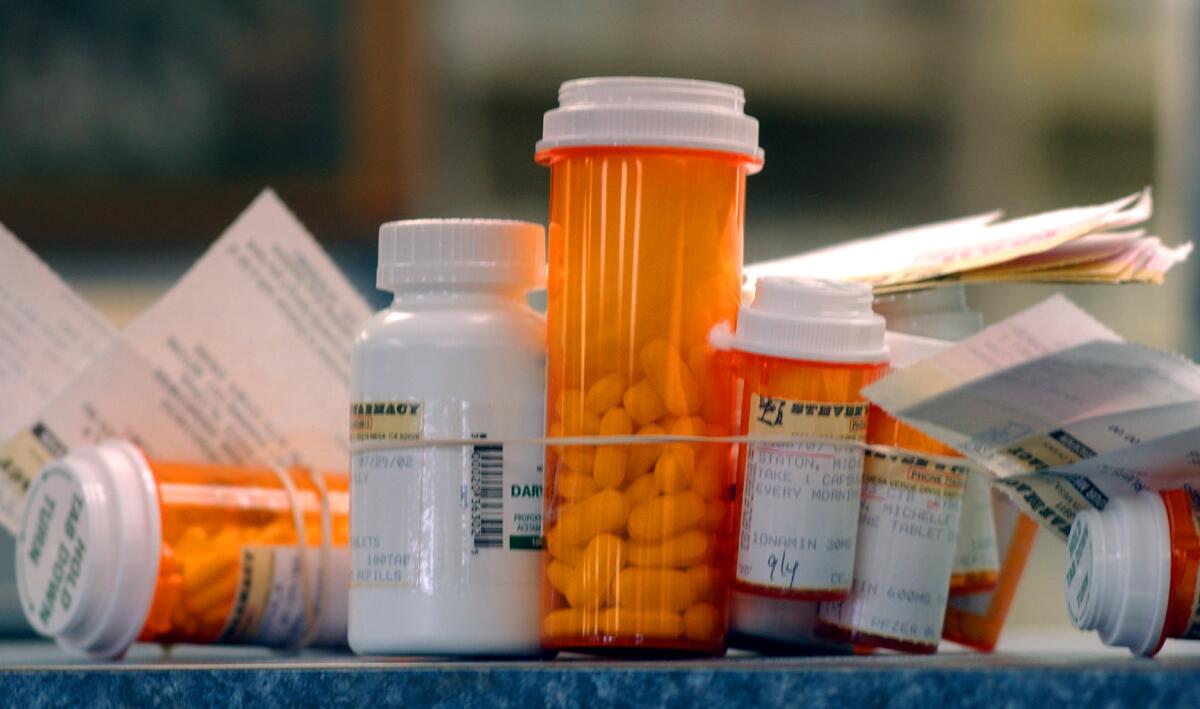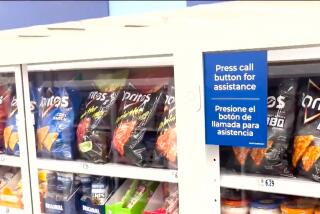Column: California is finally cracking down on sneaky automatic prescription refills

- Share via
The wheels of bureaucracy spin slowly, but they do spin.
Eight years ago this week, I wrote a column about a Torrance man refilling a prescription at CVS on behalf of his brother, who had Parkinson’s disease.
That simple transaction resulted in the ailing brother being enrolled without his permission in the drugstore chain’s automatic-refill program, known as ReadyFill, which in turn created a series of unwanted hassles such as CVS billing the man’s insurer without prior approval.
The column and its follow-ups caught the attention of the California State Board of Pharmacy, the state’s regulatory agency for drugstores.
And now, finally, the board is on the verge of adopting new rules regarding automatic prescription refills.
A board spokesman declined to comment on why it took so long for us to reach this point.
He shared with me a statement from the agency saying only that past efforts “to address the issue and explore possible violations of pharmacy law ... did not remedy the underlying problem of unregulated auto-refill programs.”
I wouldn’t have even known about this pending crackdown on automatic refills if it wasn’t for Robert Stein, a professor of pharmacy law and ethics at the Claremont Colleges’ Keck Graduate Institute.
He emailed to ask if I knew the columns I wrote on this topic in 2012 and 2013, including news that the U.S. Justice Department had opened a fraud investigation, are listed among the “underyling data” for the new rules.
“It only took eight years, right?” Stein said.
In its “statement of reasons” for the new regulations, the board said my columns and subsequent media attention resulted in state officials receiving “over 100 consumer complaints regarding auto-refill programs.”
“Patients reported being enrolled into the auto-refill program without their consent and receiving unwanted or unneeded prescription medications as a result,” it said.
The board’s investigators found “consumer harm” from this practice in the form of unauthorized payments, wasted medication and drugstores hijacking prescriptions from rival chains.
“From 2016 to 2017, the board’s enforcement committee made recommendations to the board regarding draft policy and regulations,” the agency said. “In May 2017, the board voted to move forward with proposed regulations.”
More than three years after that vote to proceed with new rule-making, the Board of Pharmacy is now in a 45-day comment period on the proposed changes.
Industry-requested revisions and follow-up votes could last into next year.
“These regulations are really, really important,” Stein told me.
“The pharmacy chains are driven by metrics, such as how many prescriptions they fill,” he said. “Every prescription they fill automatically is another notch on their belt.”
Questionable refills are also at the heart of legislation introduced by state Assemblyman Chris Holden (D-Pasadena). His bill, AB 2983, would prohibit drugstores from trying to shift patients’ prescriptions into auto-refill programs when not medically warranted.
When I first delved into this matter, a CVS spokesman insisted that automatic refills are an opt-in service and therefore no customer could be enrolled without his or her permission.
I heard the same from representatives of Target, Rite-Aid and Walgreens after I reported that customers of those chains also said they’d been signed up without permission for automatic refills.
But internal CVS emails made clear that an internal quota existed for prescription refills, with at least 30% of calls to patients about their medications expected to result in return business. A threat of “major personnel changes” was made to pharmacists who couldn’t hit their quota.
A CVS pharmacist who asked to be identified only as “Ed” told me in 2012 that the company placed pressure on druggists to sign people up for ReadyFill and thus lock in their business on an ongoing basis.
He said the practice of enrolling people without prior consent was especially effective with “the elderly and those on welfare.”
And now we know from the Board of Pharmacy that an “excessive number of complaints regarding auto-refill programs” has been received by officials, suggesting the practice was widespread among drugstores — and that it remains a big enough problem to now merit regulatory change.
The proposed rules require a patient’s written consent before he or she can be enrolled in an auto-refill program.
“This written consent will ensure patients are not unwillingly enrolled in an auto-refill program and that there is a record of their consent,” they say. Pharmacies would be required to keep such records for at least a year.
Drugstores also would have to provide written notice each time a prescription is refilled that the drug is being dispensed as part of an auto-refill plan, and to notify patients that they can cancel at any time.
“The pharmacy shall provide a full refund to the patient ... for any prescription medication refilled through the program if the pharmacy is notified that the patient did not want the refill, regardless of the reason,” the proposed rules stipulate.
Yes, it’s frustrating that eight years had to pass before state officials are poised to adopt common-sense consumer protections.
But we’re here, so props for that. Now the trick will be preventing the pharmacy industry from watering down the proposed safeguards before final passage.
I’ll keep you posted. No matter how long it takes.
More to Read
Inside the business of entertainment
The Wide Shot brings you news, analysis and insights on everything from streaming wars to production — and what it all means for the future.
You may occasionally receive promotional content from the Los Angeles Times.











